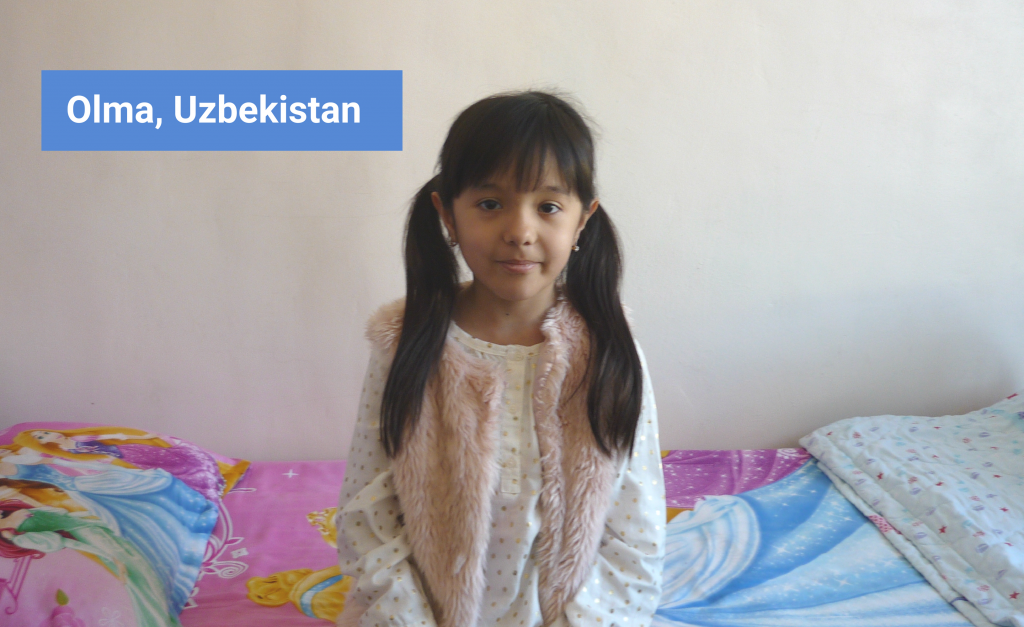“I don’t like it, it’s hard work” said 12 year old Akbar.
Summed up in an honest and simple way, this is how he feels about having diabetes. Akbar was speaking to a room of 40 doctors and nurses at a training workshop in Uzbekistan. Designed to give young people and their family’s space to explain their feelings and experiences around diabetes, it was valuable for the health professionals to hear from ‘the other side’. The voice of the patient and parent can, unintentionally, often be forgotten on busy clinic days.
Life for a Child Education Director, Angie, asked Akbar’s mother how she felt when her son was diagnosed two years ago. “I was shocked – that part of my life is missing’’. She held her son’s hand tightly and was close to tears, noticeably grief-stricken.
Akbar didn’t say much more. His mom said that his attitude had changed over the past year and he no longer wants to talk about his diabetes, he just wants it to go away.
She explained their management routine and how Akbar’s father gets up at 3 o’clock every night to check his blood glucose levels. Akbar’s older brother and sister are protective of him and watch out for high and low blood glucose levels. There is a strong sense of solidarity amongst Akbar’s family; they all eat the same foods and the kids enjoy walking together.
“His friends were very pleased to see him when he returned to school as he had been absent for 2-3 months when first diagnosed,” Akbar’s mom said. Only some of his teachers know about his diabetes. Thankfully, those who do know are very helpful.
When Angie asked Akbar’s mom if she was beginning to feel more hopeful, or if things were still difficult, she said, “It will always be difficult”.

Saffiya is 15 years old and along with having type 1 diabetes, she has sensorineural deafness. She didn’t want to be interviewed so her mother spoke for her. The diabetes diagnosis was ‘a terrible shock to the entire family’, she said.
Diabetes has had a devastating impact on Saffiya’s life; her school refused to allow her to return after diagnosis. Her only alternative was home-schooling. For Saffiya, this exclusion prevents her from joining in with important social activities, such as her much-loved dancing hobby. As there is no dance school in her village, and she has no friends of her own age she has stopped dancing. This is extremely difficult for Saffiya. It also makes it challenging for Saffiya’a mother to ‘let go’.
Sadly, it is common for children with diabetes to be refused entry into school. With the correct mediation and advice for schools from health professionals with expertise in type 1 diabetes, progress can be made, and this kind of discrimination can be minimized – education is the key.
At the end of the session, Angie asked Saffiya’s mother if she would like to send a message to the health professionals in the audience. Emotionally she exclaimed, “To you, we are one of many….to us, diabetes is our life, please be more caring towards your patients and their families. We also want a cure”.
A powerful and heartfelt statement.
For just $30 you can provide a child like Saffya with insulin, supplies diabetes education and care for a month. Give a critical lifeline to a child today by making a donation today

Acknowledgements
The workshop was developed in conjunction with the International Society for Pediatric and Adolescent Diabetes.
We would like to thank Professor Said Ismailov and his team, together with the visiting Paediatricians, Paediatric Endocrinologists and nurses from all over Uzbekistan or who welcomed us so warmly to their beautiful country.
Thank you also to Dr Debra Cohen for participating in the training workshop and the children and parents who had the daunting task of sitting in front of an audience whom they hardly knew, speaking of very personal and painful topics.
